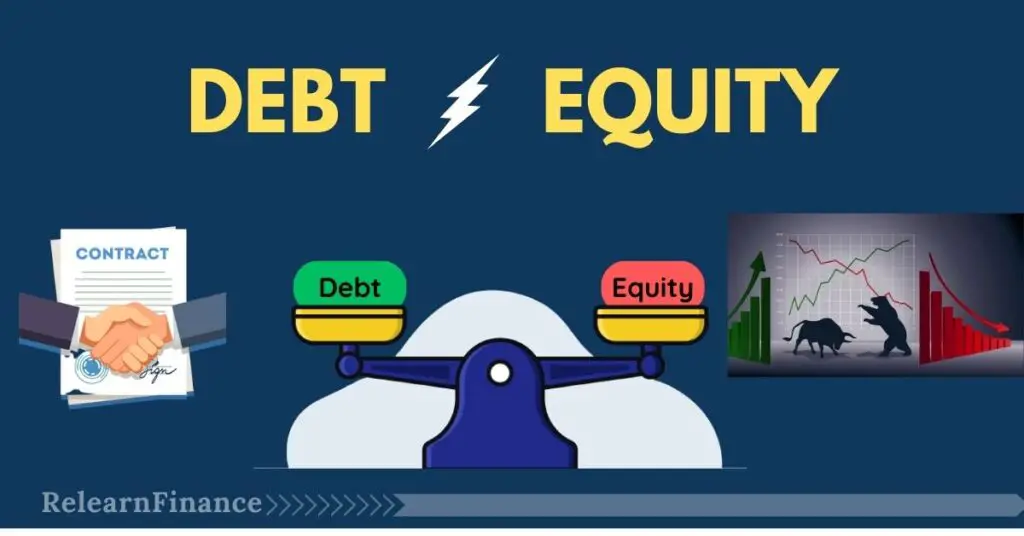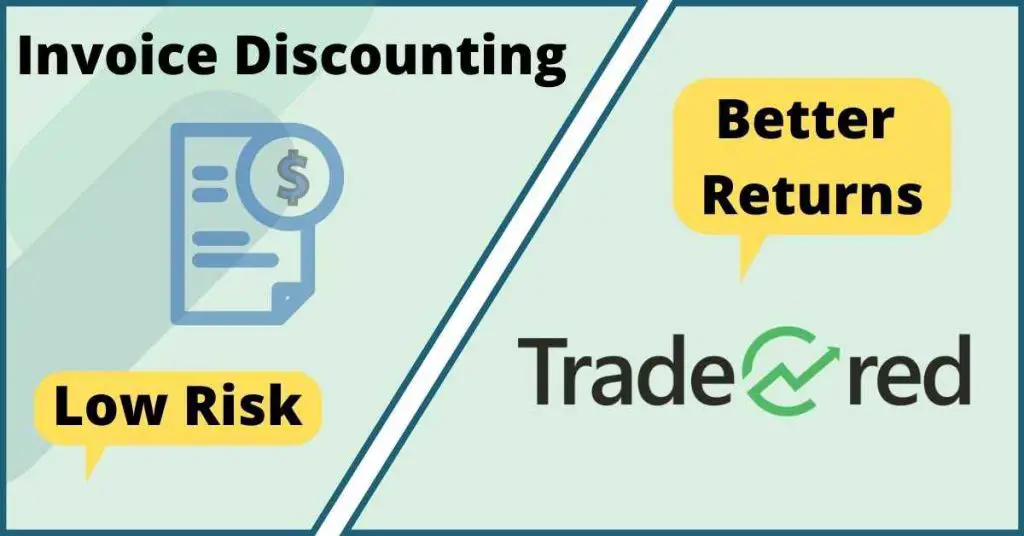Read on to learn about the key difference between equity and debt funds that can help you make the best decisions for your investment portfolio.
Each fund, equity or debt, has its own risk-return profile. Equity funds will give you the possibility for increased returns but come with more volatility.
Debt funds, typically considered less volatile, provide more modest returns. Here, we’ll figure out the difference between equity and debt funds and try to understand their characteristics, benefits, and functions.
What is the difference between Equity and Debt funds?
Equity Funds are standard mutual funds in India. They are called open-ended equity funds, too. These funds allow investors long-term capital appreciation, a great characteristic of equity funds.
When a person invests in an equity fund, they become a shareholder in several companies listed or represented in the fund’s portfolio.
Debt funds, on the other hand, are mutual funds that primarily invest in fixed-income securities, such as government or corporate bonds, treasury bills, and other debt instruments.
These funds are designed to provide regular income and preserve capital.
Characteristics of Equity And Debt Funds
Let’s first look at the Equity Funds Characteristics:
- Equity funds mainly invest in stocks or equities of different companies and are designed for long-term capital appreciation.
- Equity funds can experience significant price fluctuations because stock market movements directly impact them.
- They give you the possibility for more returns in the long run, but you must remember that returns are not always guaranteed.
- Investors may receive dividends and capital gains when the fund’s underlying stocks perform well.
>> Golden Pi Review – First Bond Investment Platform In India
Debt Funds Characteristics:
- Debt funds are income-focused, provide regular income through interest payments, and are suitable for investors looking for stable income.
- Debt funds are generally less volatile as compared to equity funds because their returns are tied to fixed interest payments.
- They focus on preserving the invested capital while providing a steady income stream.
- Debt funds are considered lower risk compared to equity funds but may offer more average returns.
What Are the Tax Implications Associated With Equity Funds And Debt Funds?
Tax implications for equity and debt funds are not the same and can affect your returns.
In equity funds, long-term capital gains (holding period of more than one year) are tax-free up to a specified limit, while short-term gains are taxed at a flat rate.
Debt funds, on the other hand, attract indexation benefits for long-term capital gains, which reduce the tax burden. Short-term capital earnings from debt funds are added to your taxable income.
Professional advice or consultation with a tax expert can be helpful here.
Things You Must Keep in Mind Before Investing in Equity Funds
Here are some important things you must consider before investing in equity funds:
- Specify your financial goals first. Are you investing while keeping long-term growth in mind for retirement, or have a financial goal? Your goals will impact your choice of equity funds.
- Assess your ability to take risks. Equity funds can be volatile, so investing in line with your comfort level is important.
- Consider your investment horizon. The longer your investment horizon, the better you can survive market fluctuations.
- Evaluate the fund’s diversification. A well-diversified equity fund spreads investments across various sectors and companies, which reduces risk.
- There are large-cap, mid-cap, small-cap, and sector-specific equity funds. Choose the type of equity fund that aligns with your goals.
- Always have a clear exit strategy. Decide when you’ll sell your investments, especially if your goals change or you need to rebalance your portfolio.
- Be conscious of present market conditions and economic trends.
>> How To Invest In Mutual Funds For Beginners In India
Things You Must Consider Before Investing in Debt Funds
Investing in debt funds requires careful consideration and a clear understanding of your financial goals.
Check out these key factors that you must keep in mind before investing in debt funds:
- Debt funds are generally considered lower risk than equity funds, but they are not risk-free.
- Debt funds are good for brief to medium-term goals. If you need money in the short term, consider funds with lower interest rate sensitivity.
- Debt funds offer liquidity, but some funds may have exit loads. Make sure you understand the fund’s redemption terms.
- Be conscious of the tax treatment of debt funds. They are tied to capital gains tax.
- If you need more clarification about your investment choices or how debt funds fit into your financial plan, consider seeking advice from a financial advisor.
Conclusion
Equity funds are associated with higher risks but can also give you higher returns if we talk about the long term. Debt funds will give you stability and are generally considered safer.
To decide what’s better for you, it’s important to balance your portfolio with both equity and debt funds while also considering your specific financial goals.
This detailed blog highlighting the difference between equity and debt funds gives you a better understanding of both terms.
Furthermore, it is advisable to consider seeking professional financial advice to make informed investment decisions.




Pingback: Grip Invest Review - 5 Alternative Investment Options